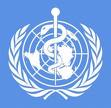
The Global Annual Assessment of Sanitation and Drinking-Water (GLAAS) is a UN-Water initiative implemented by the World Health Organization (WHO). The objective of UN-Water GLAAS is to provide policy makers at all levels with a reliable, easily accessible, comprehensive and global analysis of the evidence to make informed decisions in sanitation and drinking-water.
With over 2.6 billion people living without access to improved sanitation facilities, and nearly 900 million people not receiving their drinking-water from improved water sources, UN-Water GLAAS highlights where efforts stagnate in achieving the Millennium Development Goal Target 7.C.¬ to halve, by 2015, the proportion of people without sustainable access to safe drinking-water and basic sanitation. It also highlights the post-2015 challenges that need to be addressed by the United Nations system to collectively support its Member States.

The findings from the UN-Water GLAAS report were presented at the first annual High-Level Meeting of Sanitation and Water for All, hosted by UNICEF on 23 April 2010 in Washington, DC. The High Level Meeting will provide a forum for Ministers of Finance from developing countries, accompanied by Ministers responsible for sanitation and water, and representatives from donor countries to gain a greater understanding of the linkages between water, sanitation, and economic growth, in order to commit the appropriate resources, as well as to promote a culture of mutual accountability, partnership and shared responsibility.
Some related documents
/articles/2010-un-water-global-annual-assessment-sanitation-and-drinking-water-glaas